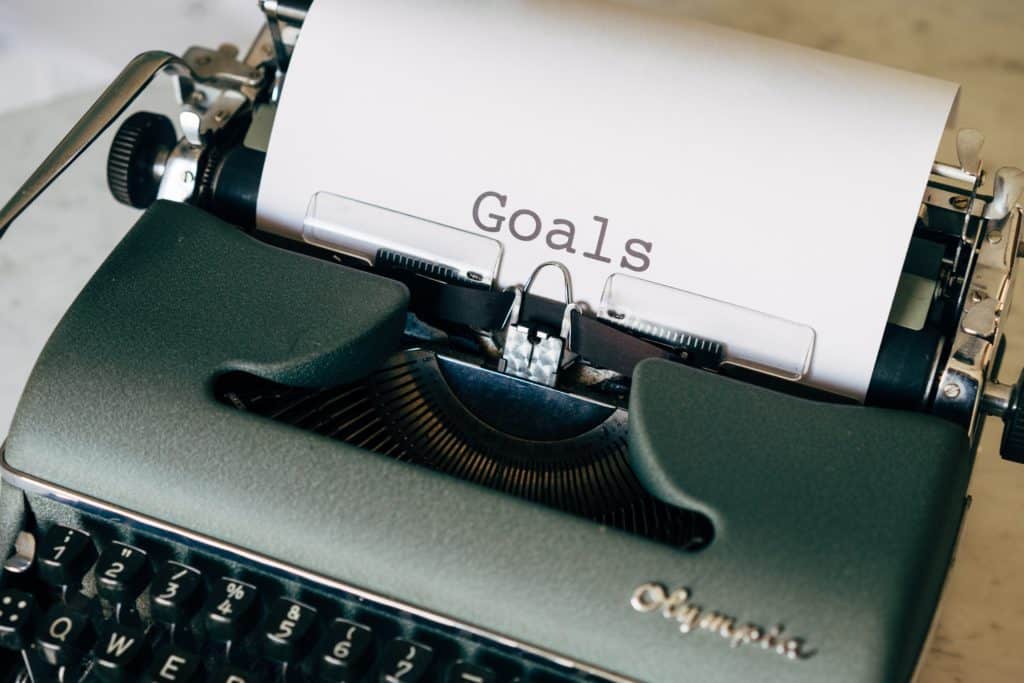Last Updated on August 25, 2023
An important part of the addiction recovery process is setting realistic goals that you can challenge yourself to achieve. Having specific recovery goals can give you a sense of direction and help keep you focused on maintaining your sobriety, although they should be kept relatively simple at first and should always be obtainable. You do not want to place unrealistic demands or expectations on yourself that could set you up for disappointment and even lead to a possible relapse.
Setting goals that are purposeful and focused on your sobriety is an important step in the journey of recovery. When deciding what you’d like to challenge yourself to accomplish, start with short-term goals that can be met and celebrated quickly.
Related post: What is Individualized Addiction Treatment?
Setting Goals May be Difficult in Early Recovery
If you are in the early stage of sobriety, the idea of setting goals in recovery can feel overwhelming. Recovery should always be a top priority, but this is especially true in your first year of sobriety. In the beginning, many people find that remaining sober one day at a time is difficult enough as it is, and may feel that setting a goal to lose weight, quit smoking, save money, get out of debt, or go back to school would be too stressful to handle. This is an understandable and appropriate feeling, but there are many ways in which setting these goals can be beneficial in the recovery process.
What are SMART Goals?
The SMART technique is most often used in the world of business to help employees focus on achieving their goals, but it has proven time and again to be extremely successful and beneficial for those who are setting goals for their recovery process as well. Using the SMART goal-setting process will break down your overall goal into smaller, more actionable steps that will prevent you from becoming overwhelmed and boost your confidence that you will be able to achieve what you’ve put your mind to. SMART goals are:
- Specific. Aim for a specific goal that is clear and easy to understand. Rather than saying “I want to be clean and sober,” which is non-specific, you could say, “I want to attend a group recovery program every day for my first 30 days out of rehab”.
- Measurable. Make your goal one that can be measured and met. In order to know if you’re achieving success, you must have a way to be able to measure your progress.
- Attainable. An attainable goal is one that is not too difficult or too easy to achieve. Saying, “I will lose 5 pounds by the end of the month” is much more realistic than saying you’re going to lose 30 pounds in the same time period, which is unattainable.
- Relevant. Make the goal relevant to your personal sobriety and well-being.
- Timely. Placing a specific time frame on the goal you want to achieve will give you a ‘finish line’ to work towards.
Examples of Realistic Recovery Goals
Some examples of realistic recovery goals that can be used to improve your life and help with your recovery are:
- Complete an additional treatment program. If you feel like you may be slipping a bit in your recovery process and need help, make it a goal to find and complete an additional treatment program.
- Maintain your sobriety at all costs. Maintaining your sobriety should always be your ultimate goal.
- Have a ‘one day at a time’ mentality. Everyone’s recovery journey is different, and if you need to take it one day at a time to keep yourself motivated that is perfectly alright.
- Find time for yourself throughout the day. Give yourself a break from daily stresses through activities such as reading, meditation, or yoga.
- Attend meetings, and attend them often. For those who are newly sober, a great goal to set is to attend 30 recovery meetings in 30 days.
- Find a trusted friend or sponsor. Surround yourself with people who support you and your recovery. Having a trusted friend who is also sober can help you stay accountable and give you encouragement. Make it a goal to find people who support your sobriety.
- Rebuild a damaged relationship. Many relationships may have been damaged due to your alcohol or substance abuse. Setting a goal to rebuild relationships with friends or family members is a good way to stay positive and more connected to the people around you.
- Make your health a priority. Addiction often leads to unhealthy habits in other parts of a person’s life. Make it a goal to eat healthy and exercise as part of your recovery process.
At Nova Recovery Center, our experienced and empathetic team can support you with your recovery goals and help you find any additional treatment that you may require. For more information, please call us at (888) 427-4932 or contact us online today.
